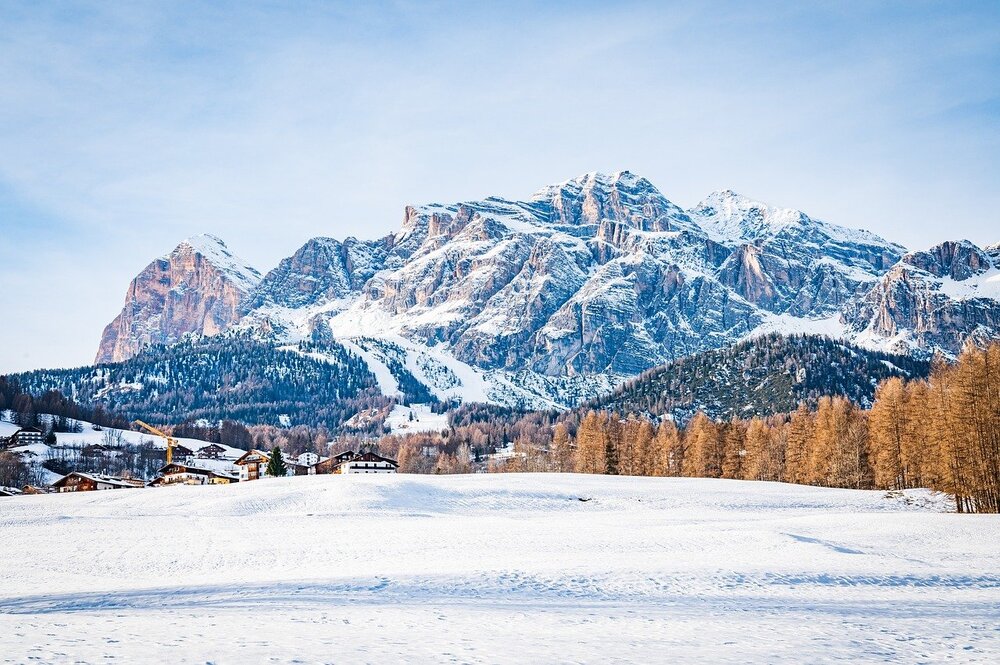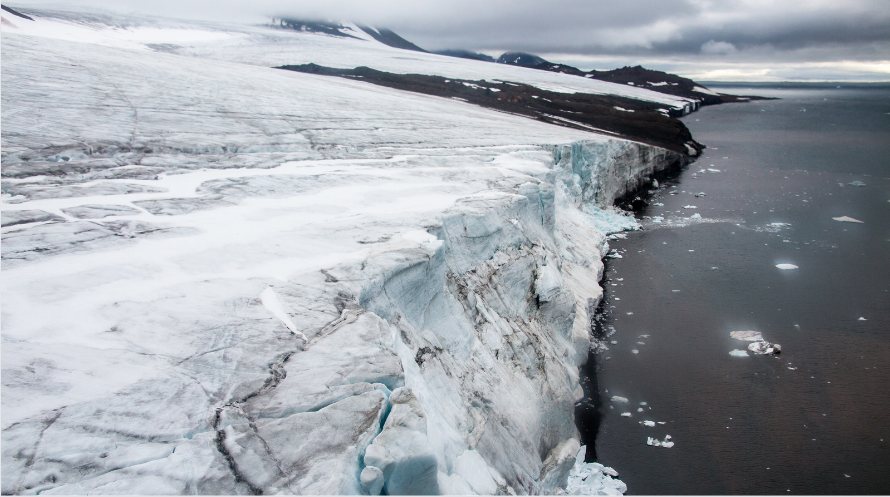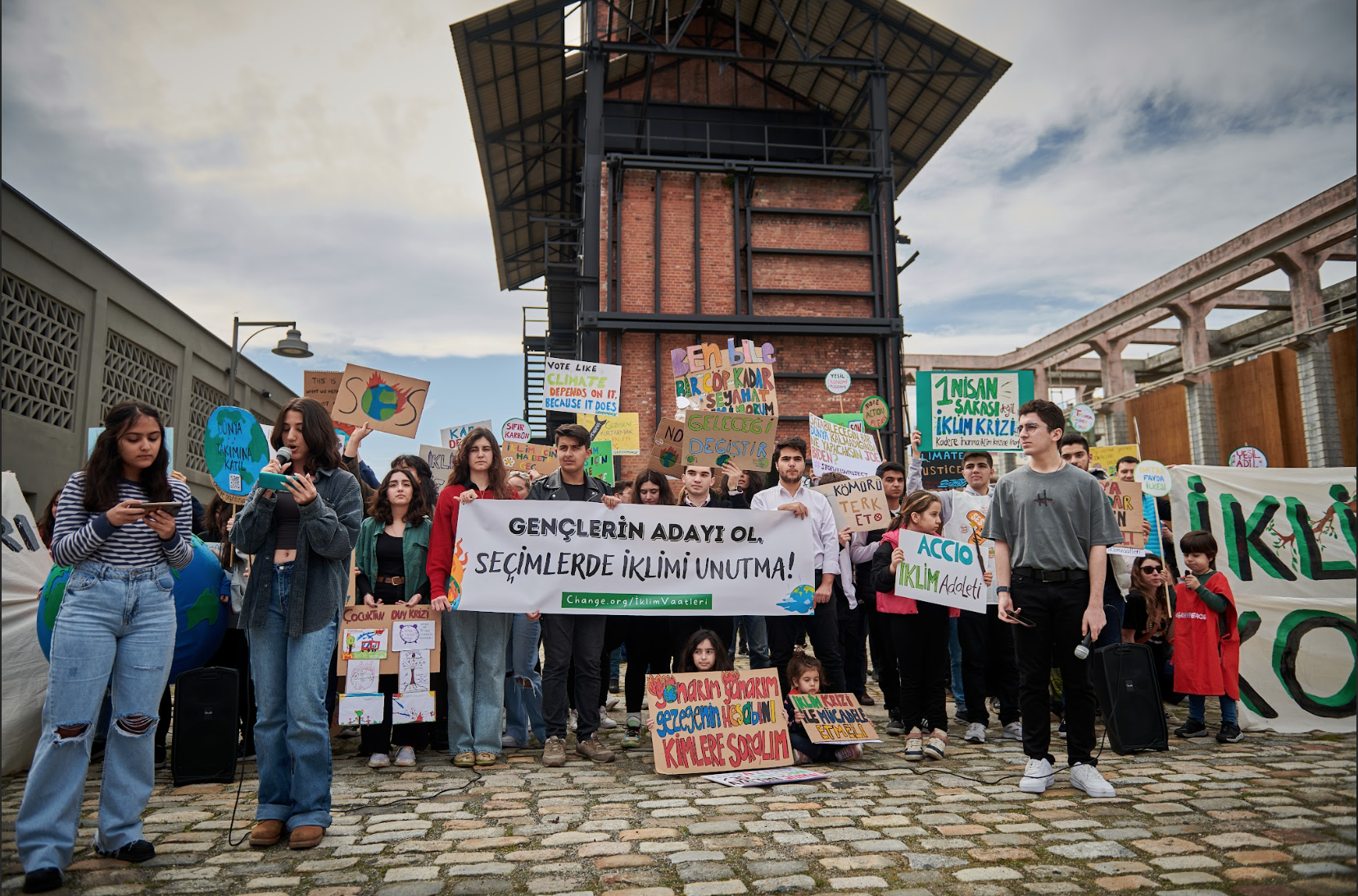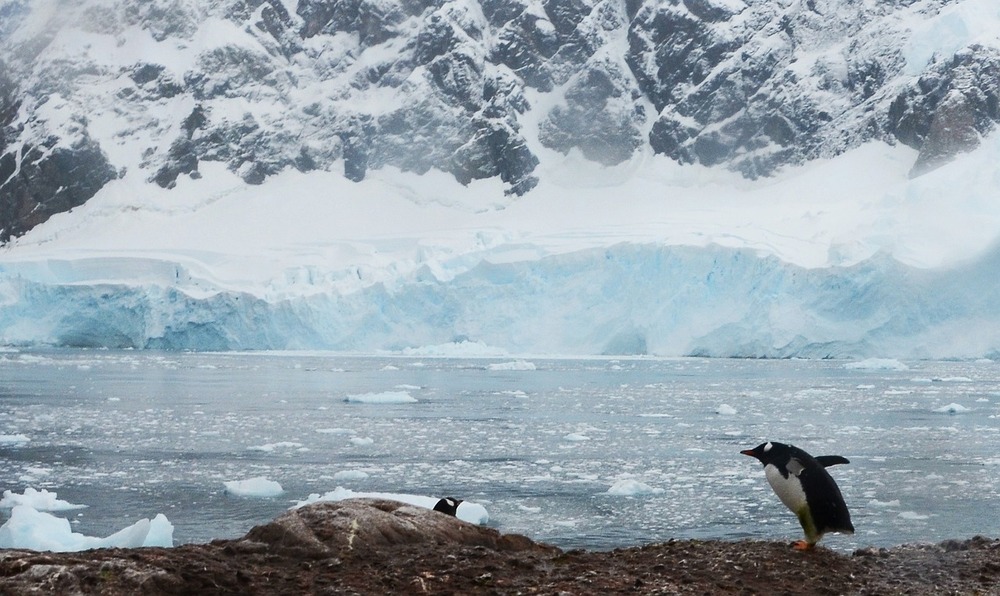Interview with director Nic Balthazar: Duty of Care, the climate trials, banality of the catastrophic, climate activism and more

Duty of Care, which will be screened as part of this year’s Sustainable Living Film Festival, follows Roger Cox, a lawyer who sued Shell, one of the world’s top ten polluters, and governments for committing crimes by not taking the necessary measures to address the climate crisis. We had a long and very enjoyable conversation with Nic Balthazar, the writer, director and producer of the documentary, about the making of the film, climate lawsuits, climate activism and the crises the world is going through.
Interview: Deniz Aytekin
Hello Nic! Your film Duty of Care will be screened at the Sustainable Life Film Festival. You are the writer, director and producer of this documentary. And you’re following an incredible Dutch lawyer Roger Cox for two years. I want to start with your motivation for doing this film. What was in your mind when you started this project?
Normally I worked for television for a long time. Then I started to make fiction films and I’ve been a climate activist for more than 15 years now. I guess Roger and I saw the film An Inconvenient Truth at the same time. It’s so funny that it kinda linked us. We both have two children and we both were stunned and shell-shocked by this documentary that changed our lives. That’s why in fact I was looking for a fiction film, a story setting around climate and I knew Roger as a lawyer. We invited him with a few climate activists to tell us about what he was doing. At that moment Urgenda hadn’t won their case yet. We were so enthused by his endeavour to solve the climate crisis with his law books and everything he had to say. He also became the lawyer of the climate case we started in Belgium. So, that’s how I knew him. And that’s how I asked him to tell me more about the lobbyists and those lawyers who work for big oil firms and I asked him if they have a problem of conscience sometimes. ‘No, lawyers don’t need the conscience’ he joked ‘they can defend people who can infringe the law, people who are even criminals, that’s their job’. But he was also telling me about what he was going to do against Shell of course. So incredible as in the David against Goliath story. But this one is real. They often say in cinema you look for a story and it’s the story that finds you. And I thought ‘Well, it’s probably true.’
Many of my other fiction films are also based on true stories and here I thought well I might as well just film the true story and make a documentary. At that time Roger said well I would not do that because it’s gonna be really really very boring. Because I just sit here on my laptop and I write everything that we are going to say, and then the courtroom is really like not in America. There is no courtroom drama like ”Objection your honour,” and that kind of drama that’s going on. It’s really very serious, aggressively very serious and there are a lot of respect for each other and that doesn’t help a filmmaker. But still I’m really glad I didn’t take his advice not to do the documentary. I have the feeling that just maybe again we could see something that hasn’t been done anywhere in the world. Something very unique that a small small law firm from the outskirts of Holland, that’s really far from the center of power. And at a certain moment it brings one of the ten most important multinationals and most important polluters to the court and has them really convicted to drastically change their course. It was exhilarating of course to be there. And we hope it’s also very exhilarating to watch.

I can say it’s a really exhilarating film. You call it a true crime documentary. Was it scary for you to declare such big polluters and governments criminals?
It’s a good question. True crime is a new genre and people are always so interested in serial killers, much more than in big crimes against humanity and the crimes against all the young people and future generations. Nobody sees them as criminals either. Just go and check, these people are still the people who make the most money and will the most influence in the world because they have power on what drives society: That’s energy, that’s oil and gas. Now more than ever maybe with this war. Are they criminals? Of course not in the same way. I don’t think that any of them do want to realise at which point they actually are wrecking this planet. And that’s what the movie also shows they know. They’ve known for decades and decades. They have special scenario departments to see which way the future is going and they know perfectly well that if we stay on the track with extracting oil and gas out of mother earth we are bound for catastrophe. Are those people criminals then? In a movie it’s the task of the maker to ask the question and for the audience to find their own answers.
These firms and governments are so big, they’re walking around with a military of lawyers. So when you started this project was it depressing? Did you feel you will win this, did you have any hope? I imagine that it must be hard to follow that case.
Yeah, it’s so interesting in the court case that at the end of the day, it’s true that those big oil companies and gas companies have a ridiculous amount of money to spend on legal council just like the tobacco industry used to have. They won so many cases and just like it’s said in the film all of a sudden they started losing and that really changed a lot for the way we now feel for the tobacco firms and the way we now finally don’t have a problem to say that smoking causes cancer. For a long time you weren’t even allowed to say that. But the interesting and exciting thing is that no money in the world can buy the deep belief, the big, deeply rooted drive and urge to try to do something. And that’s what made Roger Cox who is a very smart man in itself made him so knowledgeable about climate change. It requires a lot of study and energy. Roger has such deep knowledge about climate change, even the best paid lawyers with all their researches really make stupid mistakes. Because they, like many people do, really don’t realise what’s going on. And that’s what you see around a lot of cases around the world. If you can show and explain to a judge exactly what’s going on, then like Roger always said it’s impossible for a judge not to rule the way of justice, the way of simple, plain commonsense that it is illegal to wreck the planet, it’s illegal to steal the future of so many people. That’s why Roger always said ‘Of course we are going to win this!’ Everybody said this is gonna be so difficult and he always said ‘No I can’t see how a judge could rule otherwise.’

Were other lawyers and participants as optimistic about this case as Roger?
No, the interesting thing is that in the first climate case, the Urgenda case, there were so many professors, so many experts, so many journalists… Everyone said ”Oh that’s a really cool idea to sue your government for not taking care of climate change and hence not taking care of their citizens but it’s never gonna work. And it’s cool to sue the big polluters but that’s never gonna work.” And he proved them wrong. And that’s the incredible story of our film.
I’m also wondering your thoughts on Roger saying It’s really necessary to sue individuals like the CEO’s of the big polluters. Because it’s hard to make change in a company but punishing a single person may be more applicable. Nowadays some celebrities are also called climate criminals on social media. Do you think suing these individuals can bring any change?
That is a really interesting question. Because what everyone and what these companies will say and partly they are right, in that case we are all guilty. That’s been the whole problem: So many people say well, I’m not going to become a climate activist because I’m guilty myself. I did a travel programme for many years and I flew all around the world and I made stories that might have incited other people to take planes. Am I a criminal? Maybe yes, maybe no. But of course we should be able to hold accountable these CEOs because we absolutely see in the Shell case for example that this company clearly wanted to go a more sustainable a more right direction and then because the other ones were not following, they made a 180 degree turn and became one of the biggest CO2 polluting companies in the beginning of the 21th century. So, there were people at the top of Shell that ordered that 180 degree turn.
Are we ever going to see something like the Nuremberg trials where we are going to say ‘My God! Who put us in this situation?’ And a very interesting thing is what one of our lawyers said, in the WW2 Hannah Arendt, a well known philosopher, often talked about the banality of evil. She said in the German army everyone was doing his little job: One guy just made some bullets, the other guy was just a guardian at a camp and they said they were just following orders. That’s the banality of evil. And the lawyer, she said in the climate change, in fact we see the banality of the catastrophic. Because all these people who are working for Shell are also working for the people who fund Shell or who invest in those big oil companies… Are they guilty? They sure don’t feel guilty. Then are we gonna hold all of them accountable? It’s the banality of the catastrophic. We are all little parts of a big wheel that keeps on turning.
The most cynical thing, that’s almost funny, probably, I’m of course not a legal scholar, I don’t have a legal degree or anything but Roger told me that the easiest way to hold these people accountable on a personal level will probably be that they also went against, what was good for their company. Maybe in 10 years the company will say ‘You were the guy who kept us on collision course with the climate, going straight to the abyss. This is also what wrecked our company.’ So they can be held accountable in the first place for wrecking the planet but rather for wrecking their company. Once we will all see that this economy will collapse because the ecology will collapse, then where will we be? And then will we still have the time to have a sort of ecological Nuremberg trials? Question mark…
Talking about wrecking the planet, you directed The Big Ask’s films in 2008 and 2009, activism clips for a climate law, already then. I’m wondering what were your future predictions back then. Did you believe the humanity will make a big and quick change in terms of climate crisis and how do you feel about your past thoughts now?
The first Big Ask movie was a short film we made with 6000 people on a beach. That moved so many people across the borders. Back then I wanted to show in the film this tipping point theory that at a certain moment we won’t be able to do anything anymore and that moment scientists said well we don’t know but we think we still have left 7-10 years to really do something, but that was 2008. By now of course we have Paris and there are positive changes that have happened fortunately. And we all only can hope that with so many people shouting for climate justice did wake politicians up, but also people in industry, the people in society to make a change. Still the scientist are just as pessimistic. Maybe even more so, seeing what is actually going on in the earth’s climate system. These tipping points are coming close. It chills me to see how we might have been more ‘right’ than we even knew.
I will always be very very proud of what we did back then because that was the beginning of massive climate rallies. And it was another kind of rally. I always say we shouldn’t just go marching the streets with slogans that nobody could really understand and the signs that nobody could read. We should do cooler stuff which is a lot nicer like ‘dance for climate’. 12.000 people in that clip were dancing there on that beach. And we made a clip that we can send to the whole world. Everyone who was there still knows that. So I’m still very proud we made that. And on the other hand I have my good days and bad days. On the bad days I said well, did it all help as much as we hoped? Because the CO2 didn’t come down and is still going up. And even in my country, I don’t know the Turkish situation but it is not a lot better I guess, we still haven’t realised what an incredible sword he have above our heads.
Actually, it is a strange coincidence for me to talk to you today. Because today Turkey announced its NDC for the future at COP27 and it was revealed that the government has no plans to reduce carbon emissions before 2038.
That is a death sentence for the planet. People don’t realise and that’s the whole problem. Everyone says ”Oh, climate change yeah I know. I understand that.” But they don’t. Because in the media it’s such an unsexy topic and it’s so difficult because our psychology doesn’t hold up bad news. We always want to have optimism, hope, technologies that will save us or nuclear energy… Something is going to save us in the eleventh hour. Scientists are telling us we can’t wait for the eleventh hour, we can do that now. When you have exams and you start studying on the last day you can still get an A. But with the earth system, you can not start to make negotiations with nature. Because we see or maybe most people don’t see what’s happening on the North Pole and in Siberia and all these wildfires etc. That’s the beginning of what we are so afraid of. That’s the tipping point that we can never put right. In my bad days, it’s my worst nightmare to think that I should ever to tell my children I don’t think they should think of making babies. They want to do that and I really want to be a grandfather and that’s why I think we should fight like hell against climate crisis. Saying ‘Oh! we are starting in 2038,’ is a death sentence for so many billions and billions and billions of people.

Yes, on a sad day like this, one looks for a ray of hope to hold on to. I can honestly say that your movie gave me some hope today. Do you think as the younger generation, who are much more aware of the climate crisis than adults today, are starting to vote things will change? At the beginning of our conversation you said that Al Gore’s An Inconvenient Truth changed your life. Do you expect leaders who put climate justice high on their political agenda to emerge and make fundamental changes?
The problem with Al Gore, of course, for all the good that he did to make us realise what climate problem was, unknowingly or unwillingly, that’s where this whole polarisation on climate started in the US. If you are aware of the climate then you are a democrat. So if you are a republican you had to say that climate change is nonsense, that they are just panicking and that it is just going to cost us a lot of money for nothing. Let’s not argue, let’s not even think, let’s not even talk to each other and what we see happening there is the failure of democracy and the failure of the capitalist system. And I’m afraid, I don’t know what the situation is in Turkey but from what I hear it’s more or less also the same if you’re a progressive, than you’ll have solar panels and wind energy etc and you wanna really invest in that and you believe the climate change is the biggest threat to humanity. So, if you’re not a progressive, you have to oppose climate measures and you have to oppose windmills and even solar energy which is afterall the only energy source that powers this whole planet. That’s this big ball, in the sky that in fact gives us all the light and all the energy we need. It’s awful that all the solutions are there, and at a certain moment we come to a political system where half, and sometimes more than half of the people don’t want to see the light of the sun anymore.
But aren’t we moving towards a point where no one can deny this crisis anymore? Disasters that used to occur in the regions most affected by the climate crisis are now occurring almost everywhere in the world.
That absolutely doesn’t help does it? I mean Florida is going to be the first American state to go underwater and they have the most popular republican, almost climate denier that has just been elected with a massive amount of votes. So, for us, climate activists there is no bigger nightmare than being right. I always say I just wish I was wrong! I wish that all these people who say that we’re panicking without reason are right. But I’m afraid we can’t take the risk because if they’re wrong then it’s too late to ever do something.
You’re not so optimistic with politics I guess…
We are faced with so many crises together. We have the climate crisis, we have the biodiversity crisis which is a very similar ticking time bomb, maybe even bigger. We have the energy crisis now that we didn’t see coming, we have a geopolitical crisis of forces that we didn’t see coming like China and India etc, and now on the top of these the democracies have huge fundamental crises where democracies crumble (or Trumple). That all results in an economic crisis that’s going to be really huge on top of a financial crisis, etcetera. And we don’t realise that 90 percent of all the money that’s going around in the fast moving stock markets world is controlled by computers, it’s just algorithms reacting to our emotions. So, how many more crises do we need?
I’m trying to be optimistic for a moment. The climate crisis in fact is the only one where there are so many solutions. If we want, we have the potential of giving our planet a hundred times more energy than we will ever need. We have all these new technologies that we haven’t even tried because the old technologies like oil, gas, coal have abstracted them. So if we start going, we can go so far. It’s also what we see. The price of one solar panel has gone down 80 percent in something like 20 years. Renewable energy is now the cheapest form of energy anywhere in the world. And it’s cheaper than the energy has ever been. And it’s a sort of energy that can be evenly distributed, also towards the south, where people need it most. So we can really even out this huge imbalance. And by doing so in the end we could make such an amount of energy, hence money that we can start solving the biodiversity crisis etc. So I’m sure the climate crisis is where we need to start because it’s the one we have least time and the most opportunities to resolve if we absolutely see it as a war.
I always say if The Martians would be warming our planet and it would take a ridiculous amount of money let’s say 700 trillion dollars to shoot them out of the sky so that they couldn’t keep on warming our planet, that would take three seconds and The UN would say ”OK let’s find 700 billion dollars,” and they would do that. Apparently The International Energy Agency said that what we need to solve the climate crisis is only 2-3 percent of our global GDP. If you think that Corona was 14 percent of global GDP more or less, the war on Ukraine, we don’t know how much billions of dollars are going there… It is very cheap to solve our biggest crisis. Why are we not doing it? Because the people who are making billions and billions and billions of dollars of it are the ones abstracting it. So, is that a crime? Sure, it seems like it. But again, let the jury decide.

So what are your thoughts on groups like Extinction Rebellion and Just Stop Oil that are taking radical action instead of trying to provide climate justice by the book?
It’s really interesting because what everyone asks us as climate activists is what will help the most? Is it people inside the big companies for example, the new shareholders trying to change the companies towards a more climate positive approach? Is it people using media, making films, organising events like ‘sing for the climate’ which is easy for everyone to step in? Is it people trying to influence politics? Or is it even sabotage, blowing a pipeline?
As climate activists everyone was telling us what is not working. Like ‘sing for the climate’. That it is too soft to make a change. And now other young activists are using more forceful methods. As long as they do not engage in violence and to my knowledge they have never done so, and as long as they don’t demolish anything and to my knowledge they haven’t touched one painting, only the glass plates in front of them, I understand their anger and frustration. That’s the media.
I’ve done so many meetings when we were friendly outside with someone in an ice bear costume etc, the media was never there. And now, they found a few I think smart ways of shocking people and I understand that people are shocked when you glue yourself to very expensive paintings. That’s something that should make us think. These people say ‘Do you know how unique and irreplaceable this painting is?’ and these young people say ‘Do you know how incredibly valuable and irreplaceable the earth is that you are wrecking?’ And now people are in jail because they glued themselves into a painting whereas people wrecking our planet are going on holidays with their private jets and making millions of dollars. People should start to realise that.
As far as I know, you didn’t fly at all during the filming of Duty of Care and you tried to make a carbon neutral production. What is the state of the film industry in this regard? Do you think producers will start using more climate-friendly methods in the near future?
For the film industry I think it’s also really important to look at what we’re doing just like every industry. Every household and every individual should do that. I can’t say that I’m not proud that we made the first climate neutral fiction film Time of My Life where for the first time we kind of calculated how much CO2 we emit in making a fiction film. And then how can we cut back on all of that plastic and all of the rubbish that a film set entails. We managed to cut back our plastic and garbage waste ⅔ by just giving every actor and everyone on the set a jar to bring coffee instead of plastic cups.
And also in the documentary, we’ve done interviews in The States, UK in Pakistan and all over the world without taking one plane. I can say there are very good cameramen everywhere in the world and thanks to Corona we’ve seen that doing an online interview like we did with a local crew there is a perfectly ok way of gathering the material you need. So, combining these technologies we were able to reach experts all over the world without flying. We didn’t even go to London which from Brussels isn’t that far. So I think for a lot of documentaries that are flying around the planet: This is more cost effective, less time consuming and it really helps to burn less energy. So, of course in a climate documentary you should be able to say well we didn’t fly, we really did our best to have a minimum of CO2. That being said, sometimes if people have to go and film the fact that the Greenland ice sheet is melting they will have to go there with a plane and I don’t think we should hold it against them.
I heard a guy who works for Total, for the French oil giant who said, ”Oh you climate activists! Have you seen all these huge forest fires? There are helicopters putting the fire down. And how do you think these helicopters would fly without us?” At that moment your jaw falls open and you think ‘What do I need to say to this person? How far from reality can this person be?’ They started this fire and really will still not take any responsibility and to wrap it up I’m afraid that judges will have to hold them accountable.
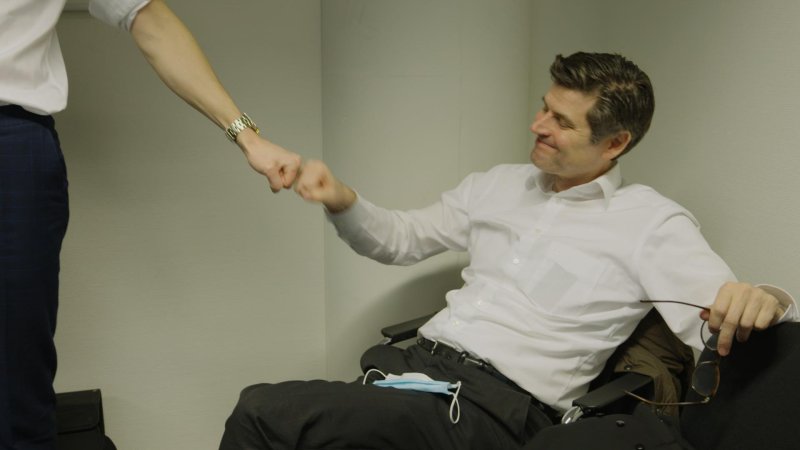
I really enjoyed talking to you Nic. Do you have any last words for the people who will see your movie at the festival?
Yeah. I’m really incredibly glad to be invited to the festival and really want to bring this film to the people in the law profession and also to law students and anyone who wants to see this message that we have a lawyer who just found out that he could do something with his law books and instead of only thinking how I can only get my energy and CO2 consumption down, we should all think what could I do on a positive level to make this transition work. If there are people who like to screen the film anywhere outside of Istanbul, they can contact us from info@dutyofcare.world That would be really great!





